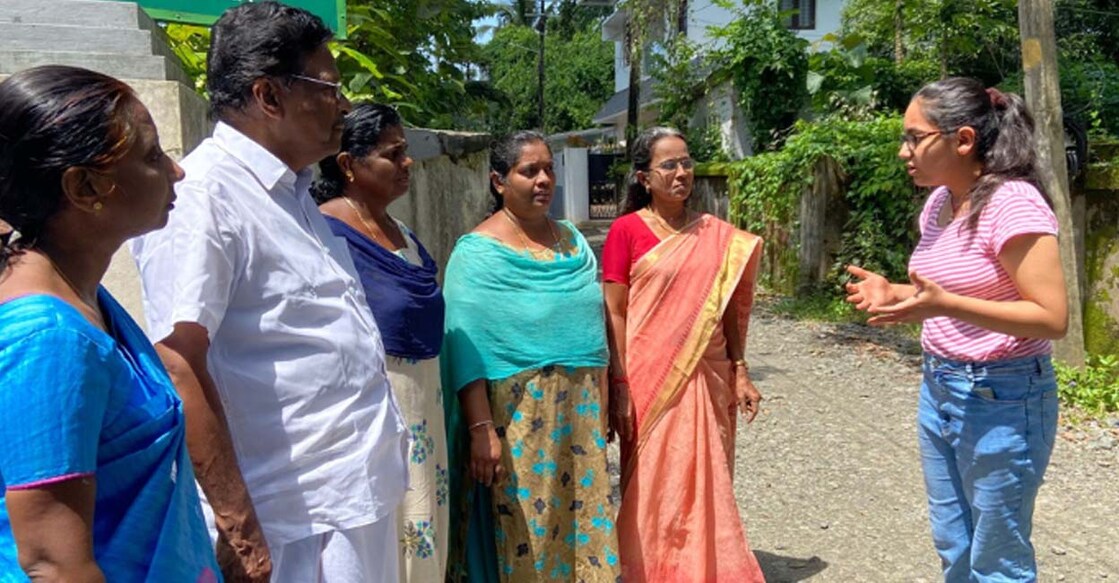Aarna Wadhawan implementing the evolution

Mail This Article
Kavus are sacred groves and are small-scale forests, providing a large help to the ecosystem. It is the duty of mankind to conserve these ecological units but sadly, not much attention is being paid for protection and conservation of these forests. Aarna Wadhawan, has tried to make efforts to help conserve these forests by working with FREED situated in Alappuzha in Kerala. FREED is a non-profit organisation being a Forum for Rural Environment and Economic Development. Aarna Wadhawan is an environmentalist who has planted 7000 trees in India and across the world. Explaining people about Protection and Conservation of Kavus, she also taught them about the dangers of plastic pollution in water bodies attempting to spread water literacy to all. To regenerate the Kavus she also planted 200 saplings with the volunteers of FREED to regenerate the forests. She is visiting different states and areas for regeneration of the environment through different means.
Sacred groves, also called Kavus in Malayalam language, are rich abodes of biodiversity. Construction and human activities have spelt doom for Kerala’s sacred groves. Kerala has witnessed a drastic reduction in the number of its groves. While the state possessed more than 10,000 groves at the time of its formation in 1956, only around 1,200 exist now, and among these many are under threat, according to the report prepared by the State Assembly Committee on Forest and Environment.
Aarna states that” Kavus being diverse ecological units have the right to be saved by mankind, the very species that attempts to destroy it every day.” She believes that through the plantations,” A small but significant impact can be created for the regeneration of these sacred groves.”
Along with conservation of Kavus, she says that water literacy is very important for the state of Kerala. Being a water abundant state, at times the water resources get exploited. Kerala is situated in the Western Ghats leaving a long and narrow coast. The Monsoon’s entry point are the sumptuous rains weathering the ghats leading to disastrous environmental changes. Human habitat undergoes drastic changes in such events. Aarna says that it is important that the people understand that it is disastrous for themselves and their surrounding environment to make human dwellings,buildings and institutions in such ecologically sensitive areas. They affect the wildlife and the environment in an adverse way. Being situated in these sensitive areas,human dwellings also have high chances of being flooded. That is why she tried to provide awareness to the people of Kerala as to why this action of theirs is harmful for them and their environment.
Aarna is much inclined towards trying to identify the disasters that might occur in the future due to the careless actions of the people. She depicts that it was human who started this war and is going to be the one to be ending with it. Changes are already seen in full force but it is sad that people still don’t want to do something about them. It is her request to all people to make attempts because someone has to make them and if it is not us then who would it be?
To know more: Twitter & Instagram

